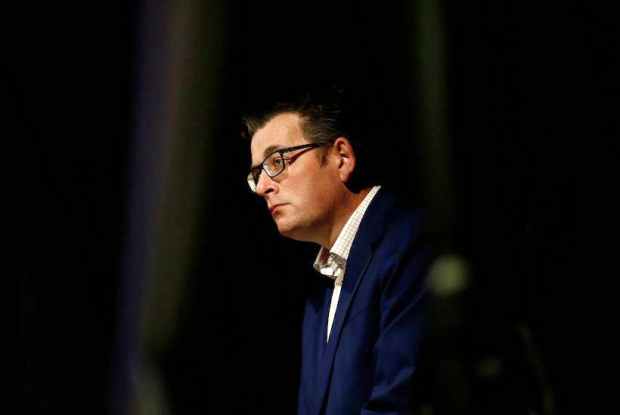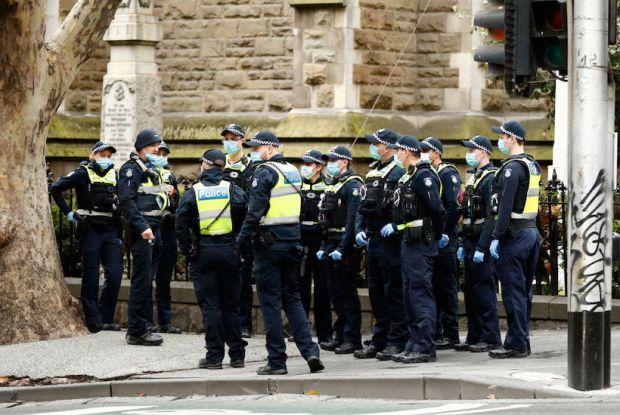One would be hard-pressed to find many silver linings as millions of Australians endured further lockdowns in July, but the admission by many business leaders and commentators that Australia’s response to coronavirus has caused enormous harm cannot be seen any other way.
“Repeated lockdowns will have devastating long-term effects on physical health, mental health, education, social wellbeing and the economy. There will likely be hidden longer-term costs we are not yet aware of,” wrote the economics editor at the Australian Financial Review, John Kehoe.
After the construction industry was shut down across Sydney, the chief of Australian Industry Group, Innes Willox, finally called out the unquestioning reliance on ‘health advice’ that supposedly justifies harsh lockdown measures. “The time has come for that [health] advice to include a proper cost benefit analysis of lockdown decisions, including the impact of Covid lockdowns on general health, mental health, impacted business sectors and the general economy,” he told The Australian.
The chairman of Telstra, John Mullen, admitted that lockdowns are distorting our economy by entrenching large corporates and devastating small businesses and sole traders. “The main economic damage certainly is to small businesses… Big businesses will, in many cases, change for the better and small business won’t, and that’s probably the biggest damage to our economy.”
These are all arguments that the Institute of Public Affairs has been making since March 2020. Lockdowns cause economic carnage, widespread unemployment, and mass small business bankruptcy. They are distorting our lives, our relationships, and our national character. But those who raised these concerns at the beginning of lockdowns were told to “stop talking about the economy” by the ABC’s then-chief economics correspondent Emma Alberici. To ask questions about the costs of lockdowns was to say that keeping the economy running took precedence over the health and wellbeing of other people.
As I wrote to IPA members on 14 April last year, this was driven by “an almost-immediate and false dichotomy between ‘lives’ and ‘livelihoods’,” perpetrated by those who were insulated from the costs of lockdowns. ‘The economy’ to those people is an abstract machine and to care about it during a health crisis is irresponsible and immoral. But, as I wrote, “economic indicators are not abstractions. They are an important insight into peoples’ lives, and it is worth debating the current measures and the impact they are having on individuals, families, and communities.”
At the start of the pandemic, it was those arguing for lockdowns who characterised the economy as a static and impersonal ‘machine’ that could be switched on and off. This characterisation was then used to justify the ‘hibernation’ that would take place when businesses were forced to close, and workers were told to stay home. It is worth noting that the concept of hibernation was established by two economists from the Australian National University, Rohan Pitchford and Robee Tourky, who thought that the economy could be switched off during a lockdown and later turned back on without causing any long-lasting damage.
This characterisation was wrong, and it has now been demonstrated that the economy cannot be repeatedly shut down and reopened without causing serious harm, but it was effective in enabling support for lockdown measures.
The idea of hibernation offered an opportunity to talk more deeply about our lives and what it means to live. ‘The economy’ is actually just a very complex network of relationships between human beings. To the bureaucrats designing lockdown measures, and the commentariat cheering them on, it is a cold concept, devoid of real meaning, and a hibernation made sense. But to small business owners, sole traders, and anyone who is embedded in material reality, it is their reliance on each other to earn an income, provide for their family, exist in their community, and have a flourishing life. They always knew that the economy could not be put to sleep.
So, while it is heartening to finally see more people speaking up about the costs of lockdowns, it appears that too many still don’t get it.
At a press conference on 21 July, Prime Minister Scott Morrison said of the Victorian, Greater Sydney, and South Australian lockdowns: “The supply chain disruption, the impacts on confidence, the fall in job ads, which is expected in these circumstances, we anticipate will have an impact on, obviously, the September quarter GDP, and will have a near-term impact on employment.”
This is meaningless technocratic speak to Australians and is probably the kind of sentence for which those arguing against lockdowns in the early stages of the pandemic were disparaged. What does an impact on (obviously) the September quarter GDP mean?
The same day as Morrison said this, Gideon Haigh, writing in The Australian, captured the problems with lockdowns that many struggle to articulate.
“Everyone has experienced the constant changing of plans, the stress and disappointment of last-minute cancellations, the fatigue and apathy that now attends any effort not directed at simply getting through a day.
“It’s the sports clubs whose seasons are being chopped up, the plucky little festivals thrown into chaos, the first-time authors who’ve had their launches cancelled, the young scholars whose research has been permanently deferred and positions cancelled.
“They may not be measured by the audits of lost economic activity; but their losses are real, permanent, probably irrevocable and certainly lamentable.”
This is much more relatable to most people. The trap is that economic statistics are easy to measure and discuss, regardless of their value. The Treasury can say that putting 14 million Australians into lockdown costs $300 million per day, but what does this mean?
There is more to life than breathing in and out. We cannot measure the cost of the relationships which ended, or were never started, because we were locked down. We cannot measure the forgone potential of babies never conceived due to the financial stresses of job losses. Going to your school ball, getting married, celebrating an 18th or an 80th birthday may not add much to the national accounts, but they are the very things that make life worth living.
Cian Hussey is a Research Fellow at the Institute of Public Affairs. Join as a member at www.ipa.org.au.
Got something to add? Join the discussion and comment below.
Get 10 issues for just $10
Subscribe to The Spectator Australia today for the next 10 magazine issues, plus full online access, for just $10.


























Comments
Don't miss out
Join the conversation with other Spectator Australia readers. Subscribe to leave a comment.
SUBSCRIBEAlready a subscriber? Log in